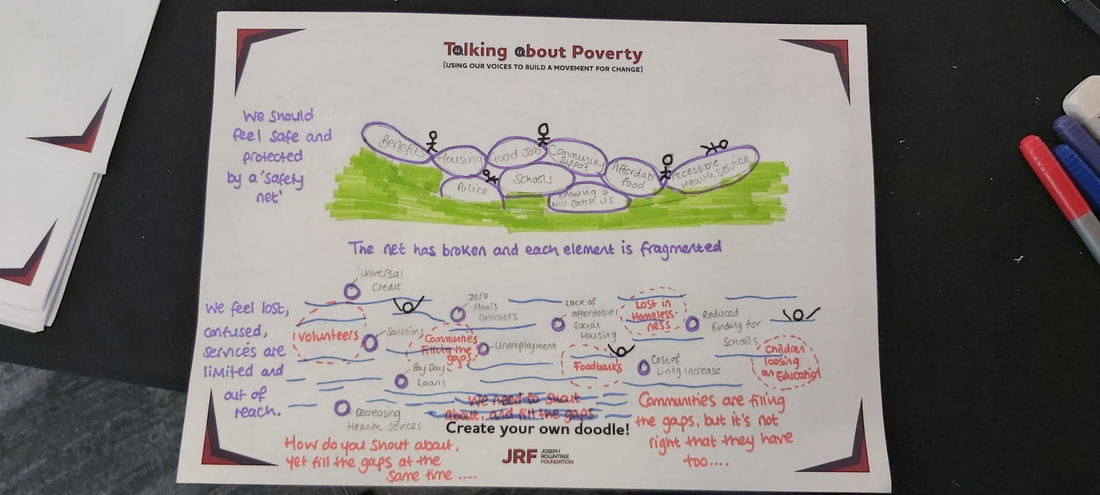Food Poverty
A major issue in the UK...
...that is becoming worse over time as evidenced by:
...that is becoming worse over time as evidenced by:
- the growth in the provision and uptake of emergency food over the past ten years,
- reports of children coming to school hungry or with no money for lunch,
- increased demand for surplus food, all demonstrate that food poverty is a major issue in the UK
[Source: Still Hungry, Garratt, E., Spencer, A. & Ogden, C., July 2016]
Indeed in January 2019 the Environmental Audit Committee found that food insecurity is significant and growing in the UK, with levels among the worst in Europe, especially for children.
Nearly 1 in 5 children under the age of 15 are living in a food insecure home.
[Source: Sustainable Development Goals in the UK follow up: Hunger, malnutrition and food insecurity in the UK, UK Parliament Environment Audit Committee, January 2019]
Nearly 1 in 5 children under the age of 15 are living in a food insecure home.
[Source: Sustainable Development Goals in the UK follow up: Hunger, malnutrition and food insecurity in the UK, UK Parliament Environment Audit Committee, January 2019]
Severe in the North West of England
Foodbanks in the North West of England consistently provide food to more people than in any other region.
Based in the North West of England, West Cheshire Foodbank has expanded since launching in November 2012. It is above average in terms of numbers being fed both nationally and regionally with six emergency food distribution centres.
[Source: Still Hungry, Garratt, E., Spencer, A. & Ogden, C., July 2016]
In 2018-19, West Cheshire Foodbank provided 9,651 three-day emergency food parcels to local people. 3,552 of the recipients were children.
[Source: New end of year statistics, 29th April 2019, West Cheshire Foodbank]
Foodbanks in the North West of England consistently provide food to more people than in any other region.
Based in the North West of England, West Cheshire Foodbank has expanded since launching in November 2012. It is above average in terms of numbers being fed both nationally and regionally with six emergency food distribution centres.
[Source: Still Hungry, Garratt, E., Spencer, A. & Ogden, C., July 2016]
In 2018-19, West Cheshire Foodbank provided 9,651 three-day emergency food parcels to local people. 3,552 of the recipients were children.
[Source: New end of year statistics, 29th April 2019, West Cheshire Foodbank]
Poverty in Cheshire West and Chester
In January 2017, Cheshire West and Chester reported 16% of the borough’s population lived in areas ranked in the 20% most deprived in England. [Source]
In 2016, 11.3% of households were living in fuel poverty and 12.7% of children aged under 16 were living in poverty. [Source]
However, at a very local level some small neighbourhood areas recorded rates of child poverty of at least 35%.
[Source: Personal tax credits: children in low-income families local measure: 2016 snapshot at 31 August 2016]
In 2016, 11.3% of households were living in fuel poverty and 12.7% of children aged under 16 were living in poverty. [Source]
However, at a very local level some small neighbourhood areas recorded rates of child poverty of at least 35%.
[Source: Personal tax credits: children in low-income families local measure: 2016 snapshot at 31 August 2016]
Causes of food poverty include:
The following drawing shows our vision of how the safety net that government and community would hope to jointly provide has broken down:
- falling wages;
- rising underemployment;
- the growth of zero-hours contracts;
- welfare restructuring and spending cuts resulting from the 2012 Welfare Reform Act resulting in a severely weakened the safety net provided by benefits;
- the widening pursuit of sanctions for benefit claimants leaving increasing numbers of claimants with no income, often in error;
- accelerating living costs including rising food prices as well as fuel, water and transport costs.
The following drawing shows our vision of how the safety net that government and community would hope to jointly provide has broken down:
Further Reading
Children's Future Food Inquiry, Food Foundation, 2019
The Emergence of Social Supermarkets in Britain, Coventry University, Research Report, 2018
Still Hungry, Universities of Chester & Oxford and various charities, Research Report, 2016
Cheshire Hunger: Understanding Emergency Food Provision in West Cheshire, Universities of Chester & Oxford and various charities, Research Report, 2015
Walking the Breadline: The Scandal of Food Poverty in 21st Century Britain, Oxfam UK, 2013
Children's Future Food Inquiry, Food Foundation, 2019
The Emergence of Social Supermarkets in Britain, Coventry University, Research Report, 2018
Still Hungry, Universities of Chester & Oxford and various charities, Research Report, 2016
Cheshire Hunger: Understanding Emergency Food Provision in West Cheshire, Universities of Chester & Oxford and various charities, Research Report, 2015
Walking the Breadline: The Scandal of Food Poverty in 21st Century Britain, Oxfam UK, 2013

